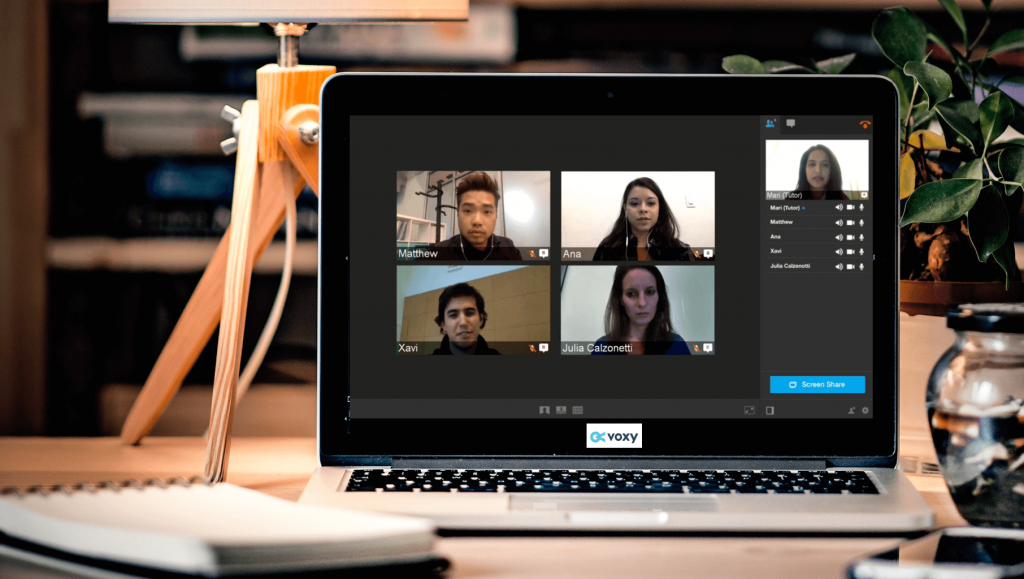Curated by the Knowledge Team of ICS Career GPS
Education

3 ways to add value to online instruction & redefine student success
Excerpts from article by Ryan Lufkin, published in EdTech
The persistence of the COVID-19 pandemic, particularly the challenges it has presented for education, has prompted institutions to re-examine the concept of student success and what it means to deliver on the expectations of students. As our wait for a return to normal has turned into acceptance of a new normal, it’s clear that learning will remain virtual for the foreseeable future.
Here are three ways institutions are adapting to focus on a more holistic approach to student development.
1. Aligning college-course objectives to future careers
Beyond the disruptions in education, the workforce has also experienced a great deal of change, and students want to know that what they’re learning in their courses is directly preparing them for their next steps. A key finding from our study supports this notion, citing career readiness as the No. 1 priority for students.
This paradigm shift has presented institutions with the challenge of transferring hands-on learning experiences to an online format that is collaborative and rigorous enough to prepare students for real-world applications.
In response to this, many institutions are using this challenge as an opportunity to connect with local organisations and community partners to provide educational opportunities that align with jobs.
2. Leading with empathy in online course design
As students strive to keep up with their courses, it’s important to remember that, like many of us, they are balancing multiple roles in their lives while also addressing the impact of COVID-19. Now more than ever, educators need to think beyond the lecture and provide flexibility, enabling students to demonstrate mastery of skills in different ways.
Many educators are leveraging technology to create a more immersive experience that allows students to discuss and collaborate virtually, rather than watching a one-way video lecture. We also see institutions using audio and video tools to give personalised and targeted feedback to individual students, transforming the traditional grading process into another opportunity for connection.
3. Creating opportunities for faculty-student engagement
Amid the increasing use of technology today, both students and faculty continue to value the hands-on learning and collaboration that technology simply cannot replace. The community that you have in a traditional classroom is not replicated online.
It’s becoming clear that the accelerated evolution that has been forced on education will result in long-term changes to instructional delivery.
Connecting educators and learners with technology and helping those learners connect with careers is becoming key, not only to the success of students but also to the success of institutions.
Career

How to avoid comparing & despairing over your career right now
Excerpts from article by Monica Torres, published in Huffington Post
The end of the year is typically a time to reflect on what you’ve accomplished in your career over the past 365 days. But it’s likely the goals and plans you set at the beginning of 2020 have been completely upended by the Coronavirus Pandemic. During a strange, hard year like this, what does a healthy reflection on your career progress even look like?
Don’t compare and despair based on pre-COVID-19 goals.
Before you start evaluating how your year went, recognise how weird and difficult it has been for many of us. Yesel Yoon, a psychologist who specialises in career transitions and job uncertainty, said that one mistake people make is comparing who they were before the pandemic to now. “That’s comparing apples to oranges. It isn’t a fair thing to do to ourselves,” she said.
On top of that, you should be careful not to discount the interpersonal relationships you gained and maintained this year as signs of progress. Yoon said another mistake people make is focusing too much on whether they got the outcome they wanted.
Take the goal of writing a book or some other creative work. If the reason behind that was to achieve creative fulfillment, you can still honor the ways you upheld that value, even if you didn’t finish your manuscript.
Use these techniques to prompt healthy reflection.
Recording positive moments by handwriting helps us process them more deeply, so formalise your reflections with pen and paper. Horsham-Brathwaite said you can write out the goals you wanted to accomplish, note what you ended up achieving, and keep track of what factors helped or hindered you in this process.
If your work year has been one stressful blur, pull up outside evidence ― like positive emails from clients and colleagues ― so that you can see the difference you have made in or for others. If you’re having trouble remembering what you did this year, Yoon said to grab the calendar where you jotted down events and pick out one thing per month that you accomplished.
Don’t take an unaccomplished goal as a personal failing.
Not achieving a career goal this year doesn’t mean you should quit and decide that goal can never be reached. Use the setback as an opportunity to reevaluate.
Don’t get caught up in self-blame. Attribute the reasons why you didn’t achieve your goals to the appropriate factors. During the pandemic, a lot of setbacks were likely circumstantial. Examine what really occurred so you can move forward without endlessly ruminating on what you didn’t do.
Recognise that you, like many people, may have made tradeoffs in your personal and professional life this year. Sometimes, not achieving a goal can be a helpful wake-up call on the values that are most important to you.
“COVID has led people to really evaluate what’s most important,” Horsham-Brathwaite said, and many learned “that the thing they were driving towards doesn’t actually matter to them the way that they thought it would.”
(Disclaimer: The opinions expressed in the article mentioned above are those of the author(s). They do not purport to reflect the opinions or views of ICS Career GPS or its staff.)
Like this post? For more such helpful articles, click on the button below and subscribe FREE to our blog.




